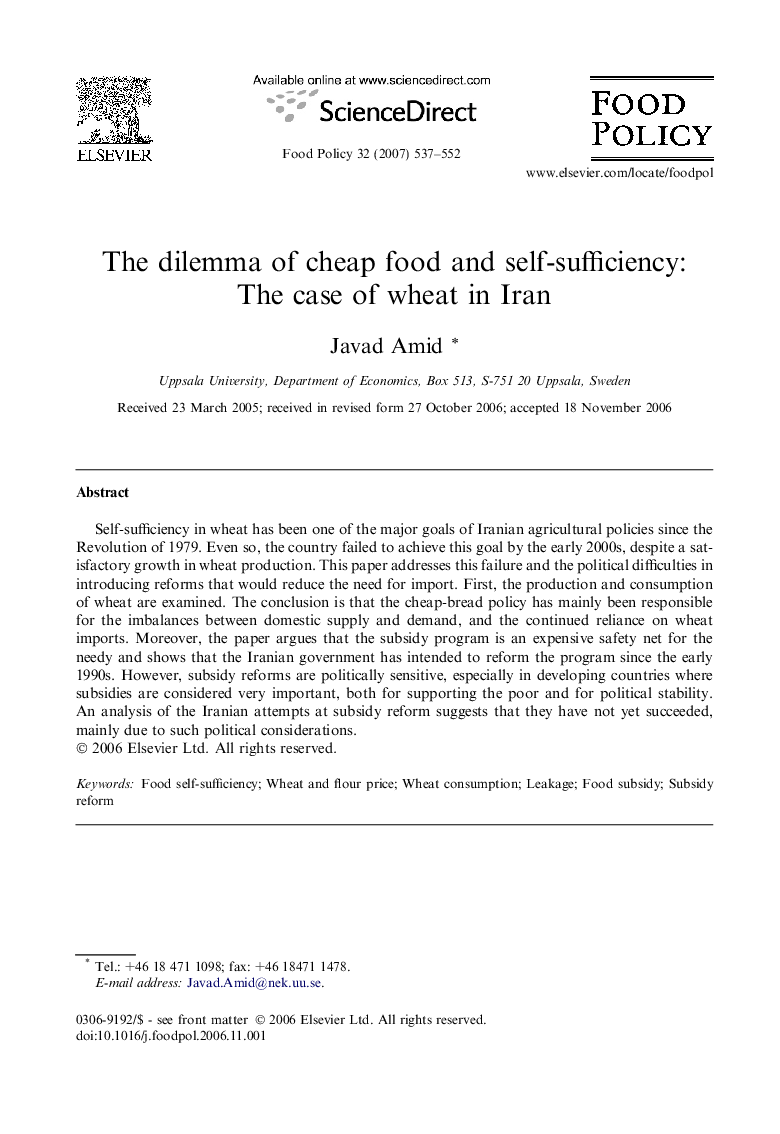| Article ID | Journal | Published Year | Pages | File Type |
|---|---|---|---|---|
| 5071194 | Food Policy | 2007 | 16 Pages |
Abstract
Self-sufficiency in wheat has been one of the major goals of Iranian agricultural policies since the Revolution of 1979. Even so, the country failed to achieve this goal by the early 2000s, despite a satisfactory growth in wheat production. This paper addresses this failure and the political difficulties in introducing reforms that would reduce the need for import. First, the production and consumption of wheat are examined. The conclusion is that the cheap-bread policy has mainly been responsible for the imbalances between domestic supply and demand, and the continued reliance on wheat imports. Moreover, the paper argues that the subsidy program is an expensive safety net for the needy and shows that the Iranian government has intended to reform the program since the early 1990s. However, subsidy reforms are politically sensitive, especially in developing countries where subsidies are considered very important, both for supporting the poor and for political stability. An analysis of the Iranian attempts at subsidy reform suggests that they have not yet succeeded, mainly due to such political considerations.
Related Topics
Life Sciences
Agricultural and Biological Sciences
Food Science
Authors
Javad Amid,
